Remove rigid regulations, reduce exam pressure
Expressing agreement with the need to amend and supplement a number of provisions in the Law on Education , delegate Thai Thi An Chung assessed that many contents in the draft are appropriate and highly practical, contributing to perfecting education policies and meeting the requirements of fundamental and comprehensive innovation in education and training in the new period.
.jpg)
Regarding the age of students entering grade 10, the delegate said that the regulation in point c, clause 1, Article 28 of the draft - "students are allowed to enter grade 10 at the age of 15 and calculated by year" is a rigid regulation and not really necessary. The delegate stated: "According to the 2013 Constitution, studying is the right and obligation of citizens. Thus, the right and obligation to study are not limited by age. In reality, there are many cases where students have to temporarily stop studying due to family circumstances, economic conditions, illness, relocation or other objective factors, so they can return to study at an age higher than 15".
From that reality, delegates proposed to remove the rigid regulations on age for entering grade 10, and only regulate them in an open direction, ensuring that all citizens have the opportunity to study, suitable to the actual conditions and circumstances of each person.
Regarding the high school graduation exam, delegate Thai Thi An Chung said that the regulation in Clause 2, Article 34 of the draft needs to be amended in the direction that "students who complete the high school program and meet the requirements of the Ministry of Education and Training will be granted a graduation certificate", it is not necessary to go through a high school graduation exam as it is now.
Explaining the need to abolish the high school graduation exam, delegate Thai Thi An Chung analyzed: Currently, the exam is carrying out a dual goal, both for graduation and for university admission. These two goals are somewhat contradictory: if it is for graduation, it only needs to evaluate the level of program standards, but if it is for admission, it is necessary to differentiate students' abilities.
The delegate cited the data of the 2025 high school graduation exam, with more than 1.1 million candidates taking the exam at more than 2,500 exam sites with more than 50,000 exam rooms, mobilizing more than 200,000 officials, teachers, and employees to serve the exam... The graduation rate of 99.21% shows that it is necessary to review whether it is necessary to organize an exam to avoid waste and pressure. On the other hand, universities have now been given autonomy in enrollment and the high school graduation exam is no longer the only channel for university admission...
Increasing autonomy, ensuring substance
Regarding the draft Law on Higher Education (amended), delegate Thai Thi An Chung basically agreed with the amended contents, especially the provisions to strengthen university autonomy. However, according to the delegate, the provisions related to academic autonomy and enrollment autonomy need to be adjusted to ensure consistency and substance in implementation.
Specifically, regarding academic autonomy, according to Clause 3, Article 23 of the draft, higher education institutions have the right to proactively develop, evaluate and issue training programs. However, Clauses 2 and 3, Article 24 stipulate that the Minister of Education and Training must approve training programs for teacher training majors, health, law and all doctoral training programs.
.jpg)
The delegate said that the Ministry's approval of doctoral programs is necessary due to their specificity and high academic requirements. However, for teacher training, health and law fields, this regulation is not really consistent with the spirit of university autonomy. The program approval is essentially "pre-control", while the general policy of the Government is to move from "pre-control" to "post-control".
Delegate Thai Thi An Chung also noted that including the law major in the group requiring program approval is something that needs to be considered, because law students who want to practice their profession (lawyers, notaries, judges, prosecutors, etc.) must undergo vocational training and separate exams. Therefore, requiring program approval at the university level is not necessary... The delegate suggested studying the removal of this regulation to ensure the autonomy of higher education institutions.
Regarding enrollment autonomy, in Clause 1, Article 25, the draft stipulates that higher education institutions are autonomous in determining enrollment targets, choosing enrollment methods, organizing training, etc., except for teacher training, health, and law fields.
According to the delegate, excluding these three groups of fields is unreasonable, because if university autonomy is granted, it must be granted uniformly, and there should be no distinction between fields. In addition, Clause 2 of Article 25 stipulates that enrollment must be carried out according to the enrollment regulations of the Ministry of Education and Training - this, according to the delegate, does not clearly demonstrate autonomy, because "autonomy" that is still tightly bound to the regulations of the Ministry is not truly autonomy.
The delegates proposed that the Ministry of Education and Training advise the Government to issue a Decree implementing the Law on Higher Education, including detailed regulations and guidelines on autonomous enrollment in a principled and long-term manner so that universities can proactively develop appropriate enrollment methods. This approach not only helps promote the real autonomy of higher education institutions but also reduces the current situation of constantly changing enrollment regulations every year, causing difficulties for students, parents and society.
Affirming that amending and supplementing the Law on Education and the Law on Higher Education is extremely necessary to perfect the institution and create a legal corridor for educational development in the new period, delegate Thai Thi An Chung emphasized: specific regulations need to be flexibly designed, suitable to reality, ensuring citizens' right to study, reducing administrative procedures, and at the same time promoting the autonomy of higher education institutions towards the goal of building an open, substantive, effective and humane education system.
Source: https://daibieunhandan.vn/dbqh-thai-thi-an-chung-nghe-an-bao-dam-quyen-hoc-tap-tang-cuong-tu-chu-dai-hoc-thuc-chat-10392382.html




![[Photo] Da Nang: Shock forces protect people's lives and property from natural disasters](https://vphoto.vietnam.vn/thumb/1200x675/vietnam/resource/IMAGE/2025/10/22/1761145662726_ndo_tr_z7144555003331-7912dd3d47479764c3df11043a705f22-3095-jpg.webp)
![[Photo] Prime Minister Pham Minh Chinh chairs meeting on nuclear power plant construction](https://vphoto.vietnam.vn/thumb/1200x675/vietnam/resource/IMAGE/2025/10/22/1761137852450_dsc-9299-jpg.webp)


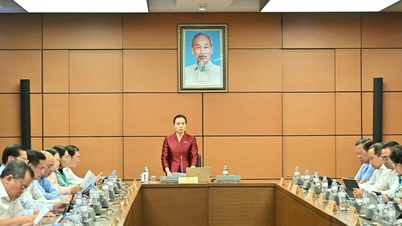
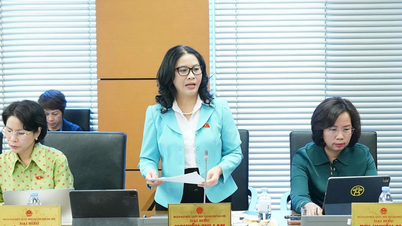

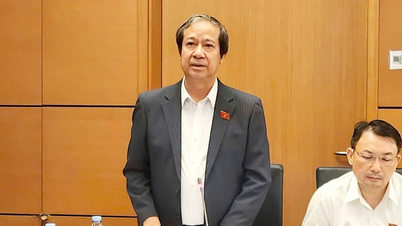




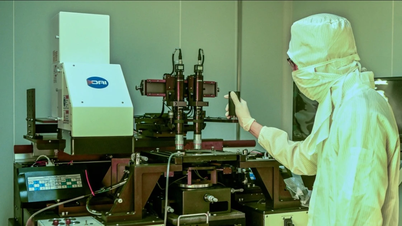
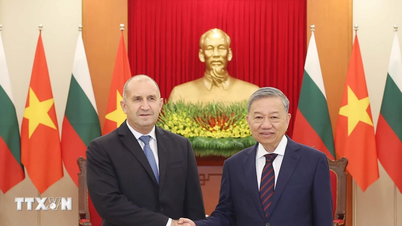

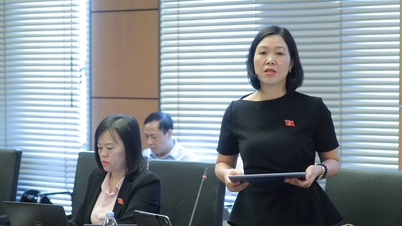
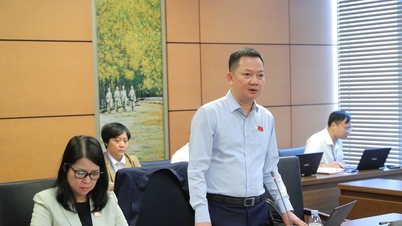

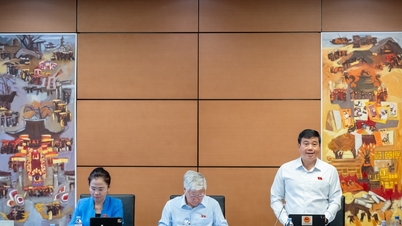




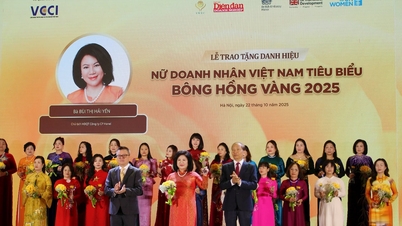
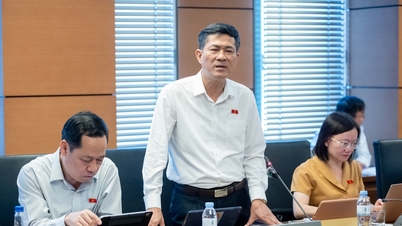
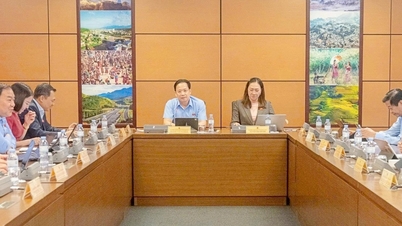
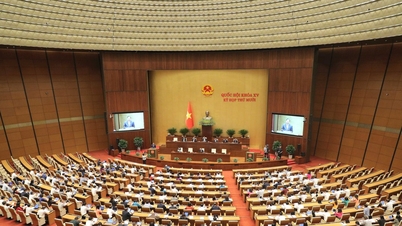

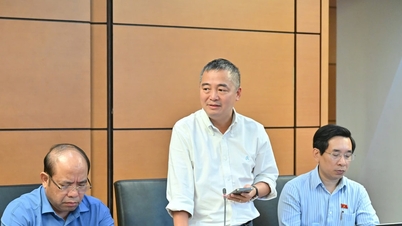









































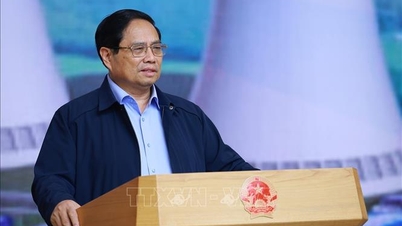




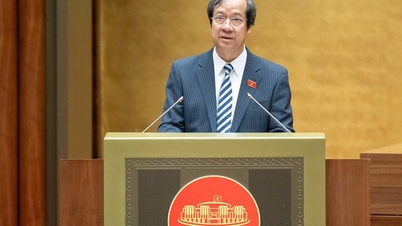


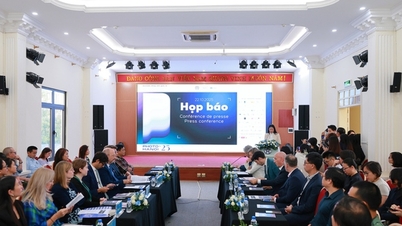

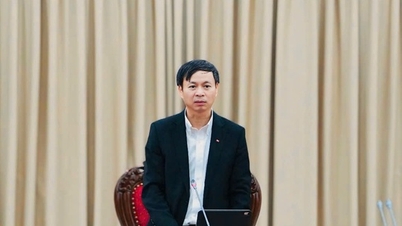

























Comment (0)